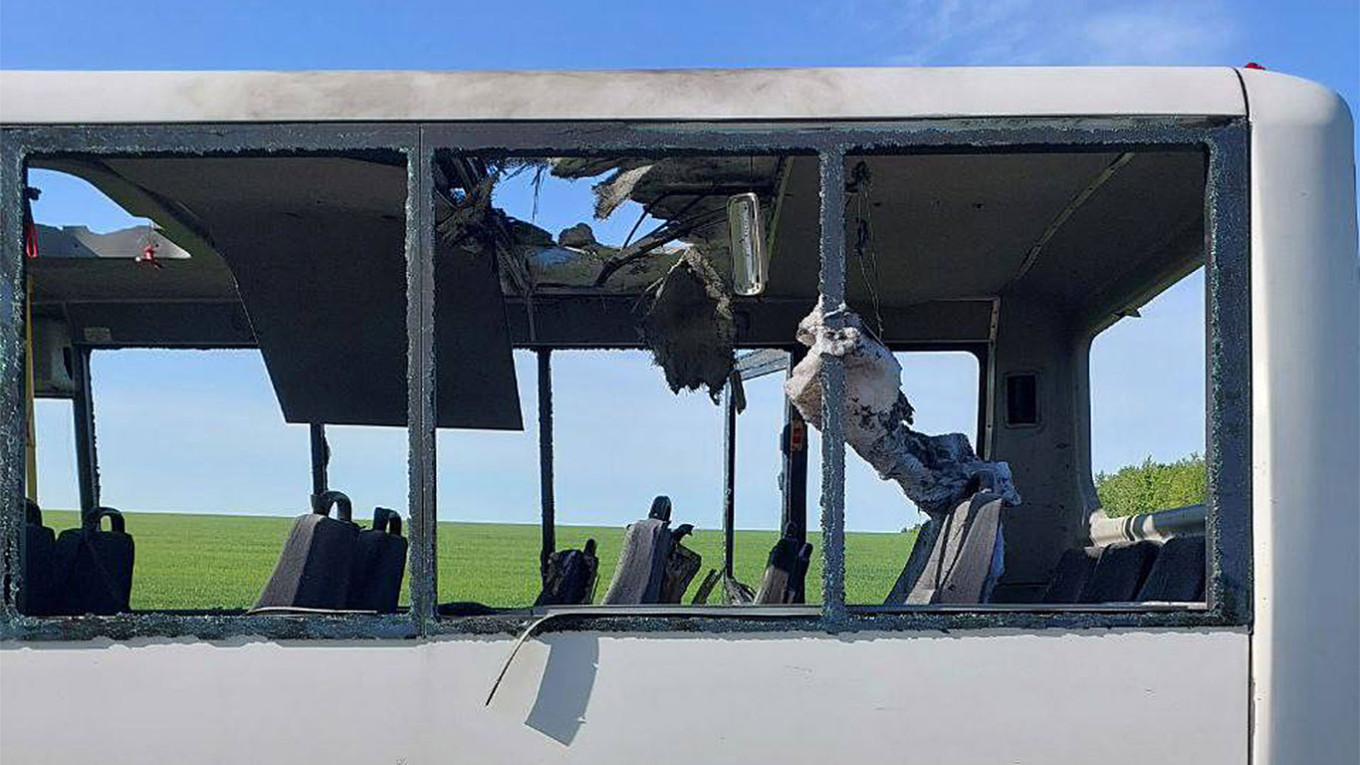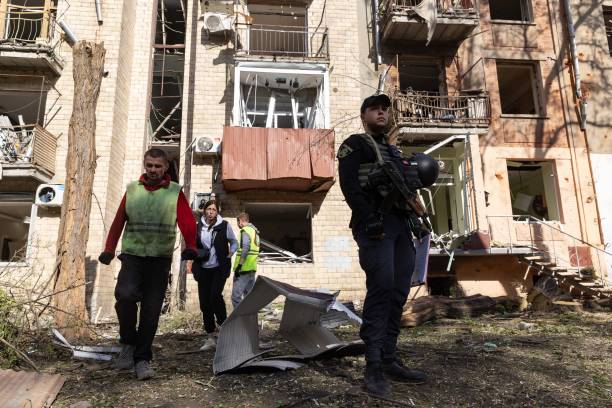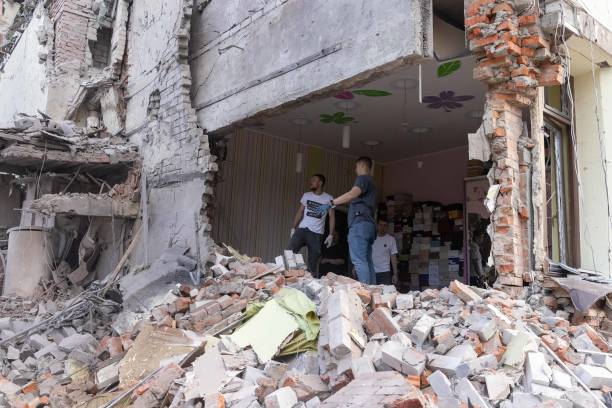Seven people have been killed and at least 35 injured in an air attack on Russia’s Belgorod region, on the border with Ukraine.
Regional governor Vyacheslav Gladkov blamed Ukrainian forces for the strike near the village of Beryozovka, which he said was carried out with drones and hit minibusses transporting workers to a meat production facility, as well as a private car.
Mr Gladkov said several other locations in Belgorod region had also come under attack in the last 24 hours, with residential buildings damaged.

The Belgorod region has often been targeted by Ukrainian forces since the start of Russia’s full-scale invasion of Ukraine in 2022.
Hours later, Mr Gladkov reported another fatal attack, this time in the village of Nikolskoye. At least one person was killed when an outdoor cooking area was struck, he said.
The deadliest strike on the region so far occurred in December, when a drone and rocket attack killed 25 people and wounded another 100 in the city of Belgorod.
In March, Mr Gladkov said 9,000 children would be evacuated from the city and the wider region after shelling that authorities have blamed on Ukraine.

Meanwhile, Russia has continued to target Ukraine’s energy infrastructure, damaging a facility in the northern Sumy region – which borders Belgorod region – in an overnight bombardment. Ukraine’s energy ministry said the attack had left more than 400,000 people without power. Power was partially restored by morning, local authorities said.
According to the US-based Institute for the Study of War (ISW), Russia is massing troops in the regions of Belgorod, Kursk and Bryansk in preparation for an offensive operation against northeastern Ukraine and the city of Kharkiv.
Citing a Ukrainian military observer, the ISW said that the Russian military has gathered roughly 50,000 personnel. Ukrainian officials have long warned that Russia is gearing up to launch an attack to seize Kharkiv, Ukraine’s second-largest city.

On Monday, the Russian Ministry of Defence said it had started preparations for missile drills simulating the use of non-strategic nuclear weapons.
Tactical nuclear weapons are small nuclear warheads and delivery systems intended for use on the battlefield, or for a limited strike.
TASS news agency reported that the drills, ordered by Russian President Vladimir Putin, were expected to take place “in the near future” and would involve missile formations as well as air and naval forces.

The decision to hold the drills was taken in response to “provocative statements and threats by certain Western officials against the Russian Federation”, the ministry added.
Although it did not name the officials, Russia has repeatedly criticized remarks by French President Emmanuel Macron about possible intervention by Nato troops in Ukraine.
Russia also reacted angrily to comments last week by the UK Foreign Secretary, David Cameron, who said that Ukraine can use British weapons for strikes within Russia.
